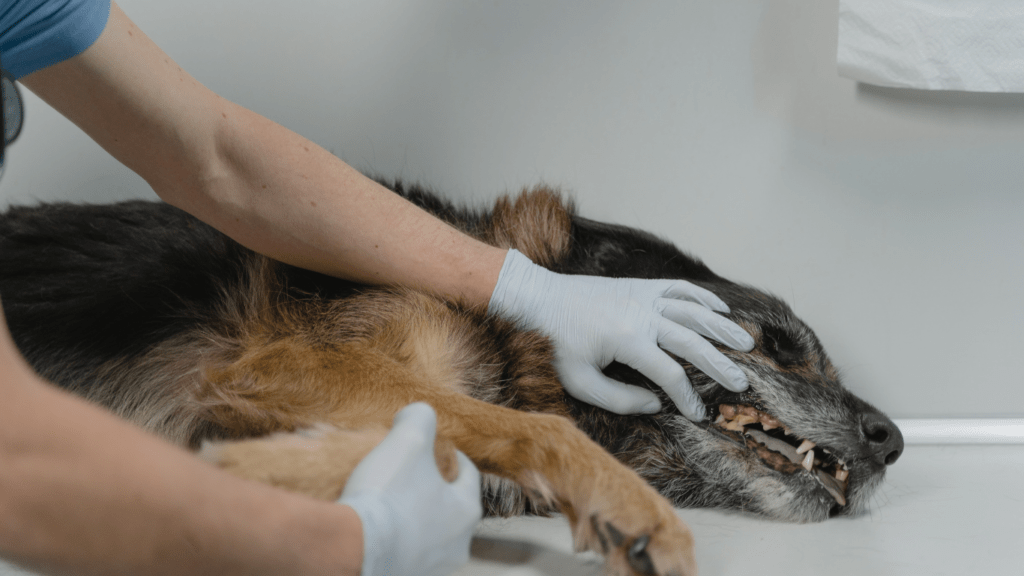As a pet owner, ensuring the well-being of our furry companions is a top priority. One aspect of pet care that often goes unnoticed until it becomes a problem is dealing with parasites. These tiny intruders can wreak havoc on our pets’ health if left unchecked. In this article, I’ll discuss the importance of parasite prevention and the various treatment options available to keep our pets healthy and happy.
From fleas and ticks to worms and mites, parasites come in various forms, each presenting unique challenges for pet owners. By understanding the preventive measures and treatment strategies, we can safeguard our pets from these pesky invaders. Join me as we explore the world of pet parasites and learn how to protect our beloved companions from these common threats.
Understanding Pet Parasites
Exploring the world of pet parasites opens a window to the diverse forms of these tiny threats that can impact our furry friends. Understanding the types of parasites that can afflict pets is crucial for safeguarding their well-being.
- Recognizing Common Parasites: Identifying common parasites such as fleas, ticks, worms, and mites is a fundamental aspect of pet care. These parasites can cause various health issues and discomfort for pets if left untreated.
- Grasping Parasite Lifecycle: Knowing the lifecycle of parasites helps in understanding how they spread and survive. Parasites have distinct life stages, and disrupting this cycle is essential for effective prevention and treatment.
- Differentiating Parasite Symptoms: Being able to differentiate symptoms associated with different types of parasites is key. Symptoms can vary depending on the parasite infesting the pet, and early detection plays a vital role in successful treatment.
Common Types of Pet Parasites
When it comes to pet parasites, being informed about the common types is crucial for effective prevention and treatment. Let’s explore some of the prevalent parasites that can affect our beloved pets.
Fleas
Fleas are tiny, wingless parasites that feed on blood, causing irritation and discomfort to pets. These pests reproduce quickly, making infestations challenging to control. Prevention is key to avoid flea infestations, as they can lead to skin allergies, anemia, and other health issues in pets. Regular grooming and the use of vet-recommended flea prevention products are essential to keep these parasites at bay.
Ticks
Ticks are external parasites that attach to the skin of pets to feed on their blood. They can transmit various diseases, posing a significant health risk to both pets and humans. Prompt removal of ticks is crucial to prevent disease transmission. Using tick preventives recommended by veterinarians and conducting regular tick checks after outdoor activities are vital preventive measures to protect pets from these harmful parasites.
Worms
Worms are internal parasites that can affect pets’ gastrointestinal tract, heart, and other organs. Common types of worms in pets include roundworms, tapeworms, hookworms, and heartworms. Symptoms of worm infestations can vary but may include weight loss, diarrhea, vomiting, and lethargy. Regular deworming as per veterinary recommendations, along with proper hygiene practices and avoiding contact with feces, can help prevent worm infestations and maintain pets’ health.
Prevention Methods for Pet Parasites
To effectively protect our furry friends from harmful parasites, it’s crucial to implement preventive measures. Here are some key strategies to keep pet parasites at bay:
- Regular Grooming: I recommend grooming your pet regularly to detect and remove any parasites like fleas or ticks. Brushing their fur can help you spot these pests early before they become a bigger issue.
- Use Vet-Recommended Products: When it comes to parasite prevention, it’s essential to use products recommended by your veterinarian. These products are specifically designed to target parasites effectively while being safe for your pet.
- Maintain a Clean Environment: Ensuring your pet’s living environment is clean and hygienic can significantly reduce the risk of parasite infestations. Regular cleaning of bedding, toys, and living spaces is crucial.
- Regular Vet Check-ups: Regular visits to the veterinarian are essential for monitoring your pet’s health and addressing any potential parasite issues promptly. Your vet can recommend preventive treatments and conduct necessary tests.
- Practice Good Hygiene: Maintaining good hygiene practices for both your pet and their living spaces is key to preventing parasites. Proper disposal of pet waste and keeping areas clean can help minimize the risk of infestations.
By following these prevention methods diligently, I can ensure that your pet is protected from harmful parasites and stays happy and healthy.
Treatment Options for Pet Parasites
When it comes to dealing with pet parasites, prompt and effective treatment is crucial to ensure your pet’s health and well-being. Understanding the available treatment options for common parasites like fleas, ticks, and worms is essential in combating these harmful pests. Here are some effective treatment methods to consider:
- Medications: Medications prescribed by a veterinarian are often the primary treatment for pet parasites. These medications may come in various forms such as oral tablets, spot-on treatments, or collars. They are designed to target specific parasites and eliminate them from your pet’s system.
- Shampoos and Dips: In cases of severe infestations, shampoos and dips can be used to help eradicate parasites like fleas and ticks. These products are formulated to kill existing parasites on your pet’s fur and skin, offering immediate relief from itching and discomfort.
- Topical Treatments: Topical treatments, such as spot-on solutions, are applied directly to your pet’s skin, usually between the shoulder blades. These treatments work by targeting parasites upon contact, preventing them from reproducing and spreading further.
- Injections: In some cases, long-lasting injections may be recommended by veterinarians for the treatment of certain parasitic infections. These injections provide a sustained release of medication, ensuring continuous protection against parasites for an extended period.
- Preventive Treatments: Preventive treatments, such as monthly flea and tick preventives, are essential in not only preventing but also treating parasitic infestations. These products are designed to kill parasites at various life stages, disrupting their life cycle and preventing reinfestation.
- Environmental Control: Alongside treating your pet, it’s important to address the environment to eliminate any remaining parasites. Regularly cleaning and disinfecting your pet’s living areas, bedding, and toys can help prevent reinfestation and ensure a parasite-free environment for your furry friend.
By being proactive in treating and preventing pet parasites, you can safeguard your pet’s health and provide them with a safe and comfortable living environment. Always consult with your veterinarian for the most suitable treatment options based on your pet’s specific parasite needs.




